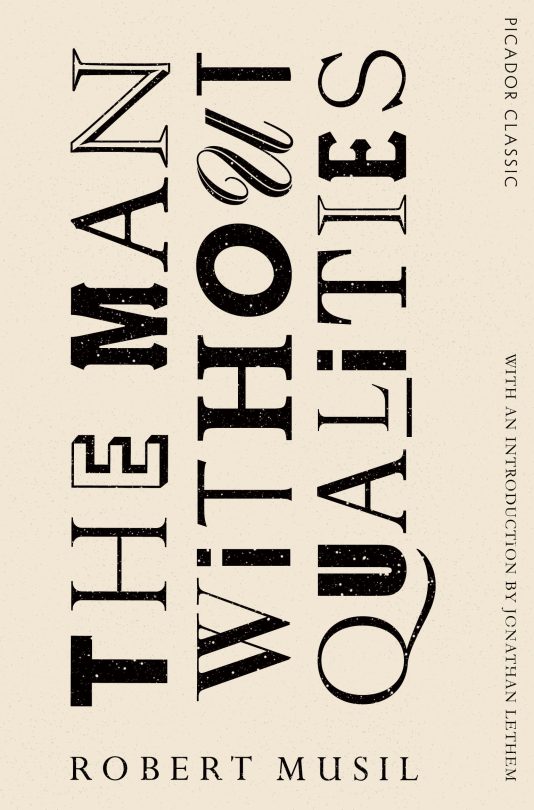#robert musil
Text
“Who among us does not spend the greater part of his life in the shadow of an event that has not yet taken place?”
Robert Musil (Diaries, tr. Payne)
#robert musil#rilke#german literature#kafka#literature#literature quotes#classic literature#english literature#dark academia#dark academia aesthetic#light academia#light academia aesthetic#cottage core#succession#book aesthetic#book quotes#existentialism#nihilism#romanticism#oscar wilde#lord byron#emily dickinson#ancient greece#ancient rome#jane austen#art#poetry#henry winter#the secret history
211 notes
·
View notes
Text
“Il linguaggio dell'amore è un linguaggio segreto e la sua espressione più alta è un abbraccio silenzioso.”
— Robert Musil
#linguaggio#amore#frasi amore#segreto#espressione#esprimere#esprimersi#abbraccio#frasi abbraccio#frasi#frasi tumblr#frasi e citazioni#robert musil
35 notes
·
View notes
Text

#the man without qualities#robert musil#modernist novel#book poll#have you read this book poll#polls#i know its three volumes and it isnt finished but shhhh
24 notes
·
View notes
Text
You’re a stranger to me now, and I’ve arrived at the other end of love.
Robert Musil, Tales of the German Imagination; from 'The Blackbird', tr. Peter Wortsman
505 notes
·
View notes
Text
[...] è certo che un uomo lo si comprende assai meglio dagli occhi che non dalle parole.
Robert Musil da "Il giovane Törless"
13 notes
·
View notes
Text

Un beau matin (2022) by Mia Hansen-Løve
Book title
Brief an den Vater (1952) by Franz Kafka
Radetzkymarsch (1932) by Joseph Roth
Der Mann ohne Eigenschaften (1930) by Robert Musil
Hyperion oder der Eremit in Griechenland (1797) by Friedrich Hölderlin
Reigen (1903) / Liebelei (1895) by Arthur Schnitzler
Immanuel Kant (1978) by Thomas Bernhard
Stücke 2 (1998) by Thomas Bernhard
Korrektur (1975) by Thomas Bernhard
Der Kulturer (1962) by Thomas Bernhard
Gedichte by Friedrich Hölderlin
Leben und Werk by Johann Wolfgang von Goethe
#austrian literature#german poetry#german literature#leben und werk#johann wolfgang von goethe#gedichte#friedrich holderlin#der kulturer#thomas bernhard#korrektur#stucke 2#immanuel kant#reigen liebelei#arthur schnitzler#Hyperion oder der Eremit in Griechenland#Der Mann ohne Eigenschaften#robert musil#Radetzkymarsch#joseph roth#Brief an den Vater#franz kafka#books in movies#un beau matin#mia hansen løve
35 notes
·
View notes
Text

Robert Musil, November 6, 1880 – April 15, 1942.
17 notes
·
View notes
Text
“If it is the fulfillment of man’s primordial dreams to be able to fly, travel with the fish, drill our way beneath the bodies of towering mountains, send messages with godlike speed, see the invisible and hear the distant speak, hear the voices of the dead, be miraculously cured while asleep, see with our own eyes how we will look twenty years after our death, learn in flickering nights thousands of things above and below this earth no one ever knew before; if light, warmth, power, pleasure, comforts, are man’s primordial dreams, then present-day research is not only science but sorcery, spells woven from the highest powers of heart and brain, forcing God to open one fold after another of his cloak; a religion whose dogma is permeated and sustained by the hard, courageous, flexible, razor-cold, razor-keen logic of mathematics.
“Of course there is no denying that all these primordial dreams appear, in the opinion of nonmathematicians, to have been suddenly realized in a form quite different from the original fantasy. Baron Münchhausen’s post horn was more beautiful than our canned music, the Seven-League Boots more beautiful than a car, Oberon’s kingdom lovelier than a railway tunnel, the magic root of the mandrake better than a telegraphed image, eating of one’s mother’s heart and then understanding birds more beautiful than an ethologic study of a bird’s vocalizing. We have gained reality and lost dream. No more lounging under a tree and peering at the sky between one’s big and second toes; there’s work to be done. To be efficient, one cannot be hungry and dreamy but must eat steak and keep moving. It is exactly as though the old, inefficient breed of humanity had fallen asleep on an anthill and found, when the new breed awoke, that the ants had crept into its bloodstream, making it move frantically ever since, unable to shake off that rotten feeling of antlike industry. There is really no need to belabor the point, since it is obvious to most of us these days that mathematics has taken possession, like a demon, of every aspect of our lives. Most of us may not believe in the story of a Devil to whom one can sell one’s soul, but those who must know something about the soul (considering that as clergymen, historians, and artists they draw a good income from it) all testify that the soul has been destroyed by mathematics and that mathematics is the source of an evil intelligence that while making man the lord of the earth has also made him the slave of his machines. The inner drought, the dreadful blend of acuity in matters of detail and indifference toward the whole, man’s monstrous abandonment in a desert of details, his restlessness, malice, unsurpassed callousness, money-grubbing, coldness, and violence, all so characteristic of our times, are by these accounts solely the consequence of damage done to the soul by keen logical thinking! Even back when Ulrich first turned to mathematics there were already those who predicted the collapse of European civilization because no human faith, no love, no simplicity, no goodness, dwelt any longer in man. These people had all, typically, been poor mathematicians as young people and at school. This later put them in a position to prove that mathematics, the mother of natural science and grandmother of technology, was also the primordial mother of the spirit that eventually gave rise to poison gas and warplanes.
“The only people who actually lived in ignorance of these dangers were the mathematicians themselves and their disciples the scientists, whose souls were as unaffected by all this as if they were racing cyclists pedaling away for dear life, blind to everything in the world except the back wheel of the rider ahead of them.”
—Robert Musil, The Man Without Qualities
(Bold emphasis mine.)
Read this absolutely brutal Musil passage soon after joking to my lover: You mathematicians are the unacknowledged legislators of the world! (An obvious reference to Shelley’s 1821 dictum that "poets are the unacknowledged legislators of the world.”)
This passage is for all of you out there who are suffering from AI vertigo. They say generative AI will make humans more “efficient.” What is all this efficiency for? Technology has been evolving at breakneck speed since the industrial revolution and we are still working just as long and hard. Efficiency has become our bondage.
Also... What the fuck does "eating of one’s mother’s heart and then understanding birds" mean? Love it, especially after reading about heart eating in medieval literature...
#Robert Musil#The Man Without Qualities#literature#capitalism#industrialization#mathematics#technocracy#technology
85 notes
·
View notes
Text
aptal bir insan genelde kibirli görünür, çünkü bunu saklayabilecek kadar zeki değildir.
robert musil - günlükler
#kitap#edebiyat#blogger#felsefe#kitaplar#blog#kitap kurdu#şiir#kitaplık#robert musil#günlükler#slavoj zizek#niteliksiz adam#roland barthes#jean baudrillard#orhan pamuk#charles bukowski#friedrich nietzsche#böyle buyurdu zerdüşt#faust#milan kundera#bilmemek#yavaşlık#tehlikeli oyunlar#tutunamayanlar#bilge karasu#gece#anton çehov#tiyatro#william shakespeare
12 notes
·
View notes
Text
Elle ne s’étonna donc pas davantage de paraître savoir, sans effort, comment il fallait se comporter dans ce Royaume. « Il faut y rester tout à fait tranquille, lui soufflait-on. On ne doit laisser place à aucun désir d’aucune sorte ; même pas à celui d’interroger. On doit se dépouiller aussi du bon sens avec lequel on traite ses affaires. On doit priver son esprit de tous ses outils afin qu’il ne devienne pas un outil. Il faut lui enlever toute science et toute volonté. Il faut bannir la réalité et l’ambition de se tourner vers elle. Il faut se contenir jusqu’à ce que la tête, le cœur et les membres ne soient plus que pur silence. Quand on a atteint ainsi l’extrême désintéressement, le dedans et le dehors se touchent, comme si un coin qui divisait le monde en deux avait sauté !... »
Robert Musil, L’Homme sans qualités, tome 2, Éditions du Seuil, 1956, p. 535
10 notes
·
View notes
Text
"Sedere di notte alla finestra aperta e sentirsi abbandonato da tutti, sentirsi diverso dai grandi, frainteso da ogni risata e da ogni sguardo canzonatorio, non riuscire a spiegare a nessuno quel che già si è e anelare a una che lo capisca, ecco cos’è l’amore. Ma per questo bisogna essere giovani e soli."
Robert Musil
27 notes
·
View notes
Text
“Something is well-written if, after some time, it strikes one as alien—one would be incapable of writing it that way a second time. Such an idea (expression) did not come from the fund that is available for daily expenditure.”
Robert Musil, Diaries
166 notes
·
View notes
Text


—‘isis und osiris’, robert musil
POSSESSION (1981) dir. Andrzej Żuławski
#possession#andrzej żuławski#worldcinemaedit#cinematv#isabelle adjani#sam neill#robert musil#possession 1981#andrzej zulawski#quoteset#ellisedits#love is consumption corruption destruction…….
143 notes
·
View notes
Quote
Ideals have curious qualities, one of which is that they suddenly turn into absurdity when one tries to strictly conform to them.
Robert Musil, The Man Without Qualities
24 notes
·
View notes
Text
the best kind of thinking is only a subtle kind of feeling
Gerald Murnane in a review: 'Of those three distinctively human activities, laughing, crying and thinking, the third is most often ranked highest, and books that provoke thought likewise. I do not agree with these rankings. I even wonder, as Robert Musil wondered, whether the best kind of thinking is only a subtle kind of feeling. These remarks make me think that one writes only as one can, as one's character allows and equips one to…that theories and beliefs are superimposed, almost irrelevant.
— Helen Garner, One Day I'll Remember This: Diaries 1987–1995 (Text Publishing Company, October 12, 2021)
9 notes
·
View notes
Text

Robert Musil, Espólio em vida, 2022 https://pt.wikipedia.org/wiki/Robert_Musil
2 notes
·
View notes